Rob Bignell's Blog, page 322
September 16, 2014
Use physical gestures to show rather than tell
One area 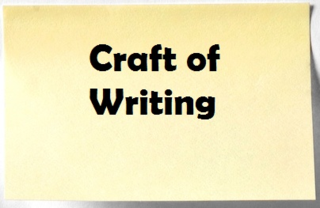 of character description that novice writers often overlook is physical gestures. That can be problematic.
of character description that novice writers often overlook is physical gestures. That can be problematic.
For example, many novice writers will tell a characters’ emotional state rather than show it. Describing a character’s physical gestures and body movements, however, allows the reader to infer that emotional state while adding a level of detail to the text that helps the reader better imagine the scene and so become more engaged in the story. So rather than writing They grew sad upon hearing the news, instead show their sadness with Tears welled in their eyes at the news.
When doing this, selecting just the right physical detail is vital. After all, varying degrees of a general physical gesture infer quite different emotional states. For instance, if something humorous is said, a chuckle shows a stronger response than a grin but less of a response that an all-out laugh.
In addition, the description of the physical gesture must be balanced against its importance in the the rest of the story. You can’t be too spare in description but can’t be too long-winded, either. Learning exactly what is appropriate is a matter of mastering the craft of writing.
Finally, you’ll have to be consistent with the details. Two jokes of equal humor should generate the same response each time from a character. With a little creativity on the writer’s part, this physical tic even can be a marker that becomes associated with a specific character; consider that whenever Mr. Spock of Star Trek fame finds something interesting, he raises an eyebrow.
Need an editor? Having your book, business document or academic paper proofread or edited before submitting it can prove invaluable. In an economic climate where you face heavy competition, your writing needs a second eye to give you the edge. Whether you come from an urban area like California's Inland Empire or a rural area like Loving County, Texas, I can provide that second eye.
<A HREF="http://ws-na.amazon-adsystem.com/widg... Widgets</A>
Related articles
 Delete bookisms in your story's dialogue
Delete bookisms in your story's dialogue Embedding exposition into your story
Embedding exposition into your story Crack a joke - but only for a good reason
Crack a joke - but only for a good reason Avoid card tricks in the dark when writing
Avoid card tricks in the dark when writing
September 15, 2014
Don’t place part of story’s plot inside a dream
If you’re 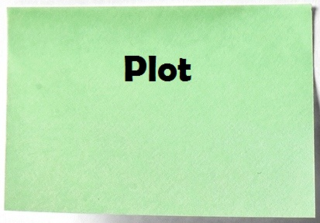 tempted to trick readers by having a portion of your story’s plot occur only in a dream, give serious second thought to it. Especially if writing science fiction, such a gimmick is a plot cliché.
tempted to trick readers by having a portion of your story’s plot occur only in a dream, give serious second thought to it. Especially if writing science fiction, such a gimmick is a plot cliché.
When initially used decades ago, the plot within a dream was a clever twist. It suggested a hallucination on the part of the main character and left in question his sanity and even the nature of reality. Often it included symbolism that played a role in undertanding the character or answering the story’s thematic questions.
Somewhere along the way, though, it became gimmicky and an inelegant solution to resolving story issues. Because of that, editors sometimes refer to it as the Bobby Ewing Gambit, named for a television show character who was killed off then after a season was brought back to the series; to explain why the character was dead for 20+ episodes, the opening scene of the year he returned shows his wife awakening from a dream. Yes, the entire season in which he’d been dead had only been a dream.
Having part of the plot occur within a dream poses all kinds of problems. One is the timeframe. In the Bobby Ewing show, the big question was how did his wife dream 20-plus hours of episodes in a single night of sleep. Guess she slept through the morning. Still, it strains credulity. In addition, if your dreamed plot is realistic then the overall story ceases to be as dreams generally are fantastical. In real life, people can’t fly and don’t just suddenly appear naked in public, yet in dreams that’s commonplace. Finally, you must be extremely careful in plotting how anything that occurs in a dream then relates to the real life portion of the story, Generally, what occurs in the dream should have no cause-and-effect connection to what occurs outside of the dream.
One last note note: Don’t confuse placing part of the plot inside a dream with the device of a literary dream. The term literary dream refers to showing a character’s inner feelings or to reveal some symbol key to understanding the story, not to actual dreaming.
Need an editor? Having your book, business document or academic paper proofread or edited before submitting it can prove invaluable. In an economic climate where you face heavy competition, your writing needs a second eye to give you the edge. Whether you come from a big city like Detroit, Michigan, or a small town like Carefree, Arizona, I can provide that second eye.
<A HREF="http://ws-na.amazon-adsystem.com/widg... Widgets</A>Related articles
 Avoid dead narrator plot gimmick in story
Avoid dead narrator plot gimmick in story Consider employing a deciever in your plot
Consider employing a deciever in your plot 'Fast forward' to keep your story moving
'Fast forward' to keep your story moving How to form your story's basic structure
How to form your story's basic structure Avoid 'As you know' Syndrome in fiction
Avoid 'As you know' Syndrome in fiction
September 14, 2014
Five Great Quotations about Sex in Writing
“I wonder 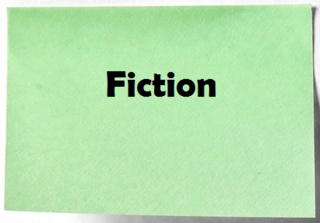 why murder is considered less immoral than fornication in literature.” – George Moore
why murder is considered less immoral than fornication in literature.” – George Moore
“Sex almost always disappoints me in novels. Everything can be said or done now, and that's what I often find: everything, a feeling of generality or dispersal. But in my experience, true sex is so particular, so peculiar to the person who yearns for it. Only he or she, and no one else, would desire so very much that very person under those circumstances. In fiction, I miss that sense of terrific specificity.” – Anatole Broyard
“Literature is all, or mostly, about sex.” – Anthony Burgess
“I suspect that one of the reasons we create fiction is to make sex exciting.” – Gore Vidal
“If the sex scene doesn't make you want to do it – whatever it is they're doing – it hasn't been written right.” – Sloan Wilson
Need an editor? Having your book, business document or academic paper proofread or edited before submitting it can prove invaluable. In an economic climate where you face heavy competition, your writing needs a second eye to give you the edge. Whether you come from a big city like St. Louis, Missouri, or a small town like Cheesequake, New Jersey, I can provide that second eye.
<A HREF="http://ws-na.amazon-adsystem.com/widg... Widgets</A>Related articles
 Five great quotations about fiction
Five great quotations about fiction Five Great Quotations about Characters
Five Great Quotations about Characters Five Great Quotations about Fiction
Five Great Quotations about Fiction Avoid white room syndrome when writing
Avoid white room syndrome when writing
September 13, 2014
Let powerful energy of inner muse guide you
No one 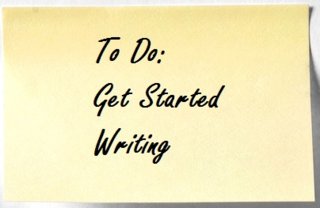 is born being afraid of telling a story. People learn to distrust themselves. But if they can learn that than they also can learn to trust their creativity and to tell the great tales inside them.
is born being afraid of telling a story. People learn to distrust themselves. But if they can learn that than they also can learn to trust their creativity and to tell the great tales inside them.
Remember: That teachers, editors, family members or even experts have said that you never would be a writer doesn’t matter. The only voice of any importance is your inner critic.
Struggling with this inner critic is your inner muse that keeps coming up with story ideas, with scenes, with pithy lines of dialogue and intriguing imagery, with outlines of whole books. Writers through the centuries have recognized the power of this muse. The ancient Greeks believed she was a goddess whispering in your ear. The Romantics believed it was the love of a woman inspiring you. Scientists say it’s the way your brain neurons have wired themselves to be creative. Regardless of why it occurs, the fact is that you if enjoy writing and are creative, some inner power drives your passion for penning stories or poems.
If you are to be a successful writer, your inner critic must turn a deaf ear to those who pooh-poohed your writing abilities and instead listen to your muse.
Until that occurs, the inner critic will throw the anchor despite that a good wind pushes your boat’s sails. Don’t allow yourself to be stuck in one place. Embrace your inner muse and let her take you on an incredible journey!
Need an editor? Having your book, business document or academic paper proofread or edited before submitting it can prove invaluable. In an economic climate where you face heavy competition, your writing needs a second eye to give you the edge. Whether you come from a big city like Pittsburgh, Pennsylvania, or a small town like Cluttsville, Alabama, I can provide that second eye.
<A HREF="http://ws-na.amazon-adsystem.com/widg... Widgets</A>Related articles
 The 'thinking step' when writing your book
The 'thinking step' when writing your book Tighten writing by cutting begin fallacy
Tighten writing by cutting begin fallacy Build character by looking at his values
Build character by looking at his values Many famous books first were self-published
Many famous books first were self-published
September 12, 2014
Give away valuable content to sell books
One of  the best ways to keep readers interested in your books is to give away “valuable” content. For example, in your ebook, you might link to additional articles about your book’s topic or its main characters. These articles would appear on your book’s website so that readers who purchase paper versions can read the URLs and locate them, too. Others who stumble across your site then can enjoy them as well, and the articles then would serve as an enticement to purchase your book.
the best ways to keep readers interested in your books is to give away “valuable” content. For example, in your ebook, you might link to additional articles about your book’s topic or its main characters. These articles would appear on your book’s website so that readers who purchase paper versions can read the URLs and locate them, too. Others who stumble across your site then can enjoy them as well, and the articles then would serve as an enticement to purchase your book.
There are a variety of “valuable content” options awaiting you. If writing fiction, you might include:
g Unpublished short stories involving your characters
g Biographies of your characters
g Chapter of your next book
g Map of community used in your book
g Recipes of dishes eaten by your characters (if food is important in the story)
If writing nonfiction, you might include:
g Articles related to the topic but not included in your book
g Worksheets that take readers step-by-step through a process described in your book
g Tutorial guides to topics only touched upon in your book
g Photo albums of places or objects mentioned in your book
g Videos taking readers step-by-step through a process outlined your book
Obtaining this extra content usually is easy. Often when writing you’ll strike out passages, sections or chapters because they’re poory related to the book or because they go in a different direction than you intended for your book. Never delete any of this but instead mine through it for valuable content that you can ad. In other cases, you might experiment with a new social media platform, such as YouTube, and that first video you create can become valuable content.
One important rule to follow when offering valuable content is to ensure that it is of quality. If that unpublished short story is poorly constructed or the article doesn’t offer information any different from what is provided in your book, it’s not really valuable to the reader. In fact, you wasted the reader’s time. Create a memorable experience for readers, however, and many of them will purchase your next book.
Need an editor? Having your book, business document or academic paper proofread or edited before submitting it can prove invaluable. In an economic climate where you face heavy competition, your writing needs a second eye to give you the edge. Whether you come from a big city like Sacramento, California, or a small town like Intercourse, Pennsylvania, I can provide that second eye.
<A HREF="http://ws-na.amazon-adsystem.com/widg... Widgets</A>Related articles
 Entice readers with excerpt from next book
Entice readers with excerpt from next book Pages needed for website promoting your book
Pages needed for website promoting your book Market your book with a free unpublished story
Market your book with a free unpublished story Offer readers a sample chapter page on website
Offer readers a sample chapter page on website Editor's '7 Minutes a Day...' writing guides on sale
Editor's '7 Minutes a Day...' writing guides on sale
September 11, 2014
DRM: To enable or not to enable
When 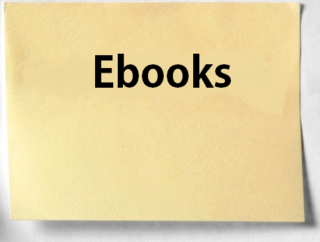 self-publishing your ebook on Kindle, you’ll be asked if you want to enable “Digital Rights Management.” If you enable it, the Kindle version of the book will include coding that makes the copying of it more difficult. The goal is to eliminate piracy.
self-publishing your ebook on Kindle, you’ll be asked if you want to enable “Digital Rights Management.” If you enable it, the Kindle version of the book will include coding that makes the copying of it more difficult. The goal is to eliminate piracy.
Authors, publishers and editors hold very different views about the value of DRM, with some recommending it and others advising against it.
The primary benefit of enabling DRM is that it will make piracy more difficult. Any number of shysters outside the reach of your country’s copyright laws have the potential to sell your books without ever paying you any royalties. They even can present your work as their own. In addition, limiting the spread of your book from one ereading device to another theoretically can result in more sales. For example, if my friend and I each own a Kindle, I can’t share a book I purchased for my Kindle device with him unless I lend my entire ereader. Instead, under DRM he must buy a separate copy of the book for his device.
Of course, DRM comes with its downsides. First, you probably won’t be the victim of an info pirate. For your book to be pirated, it must be extremely profitable or it’s simply not worth the effort to steal, especially given that hundreds of books are self-published every day. And if you are profitable, DRM won’t stop all piracy, as the coding can be stripped from your book. So, if someone wants to go through the trouble of ripping you off, they will. Secondly, some authors argue that not being able to pass around free copies of your book actually hurts sales. If the free exchange of a purchased book didn’t benefit sales, then no publisher ever would allow their books in a library to be read by multiple unpaying customers. Indeed, one tried-and-true way to build a fan base and interest in your books is to allow readers to easily access them.
Whichever way you go on enabling DRM, remember that once the decision to enable it is made, it can’t be undone.
Need an editor? Having your book, business document or academic paper proofread or edited before submitting it can prove invaluable. In an economic climate where you face heavy competition, your writing needs a second eye to give you the edge. Whether you come from a big city like Oakland, California, or a small town like Goobertown, Arkansas, I can provide that second eye.
<A HREF="http://ws-na.amazon-adsystem.com/widg... Widgets</A>Related articles
 Distribute ebook on variety of ereaders, tablets
Distribute ebook on variety of ereaders, tablets
September 10, 2014
Long-time editing client publishes short story
A long-time 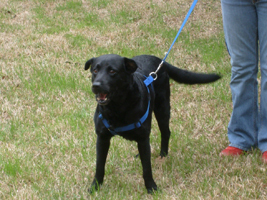 editing client of mine has published a short story on Shirley MacLaine’s website. Jana Meador’s “Buddy” tells the story of how she found an abandoned black lab, nursed it back to health, and found a new family for it. You can read "Buddy” online at “Pet Stories: In Your Own Words”.
editing client of mine has published a short story on Shirley MacLaine’s website. Jana Meador’s “Buddy” tells the story of how she found an abandoned black lab, nursed it back to health, and found a new family for it. You can read "Buddy” online at “Pet Stories: In Your Own Words”.
Need an editor? Having your book, business document or academic paper proofread or edited before submitting it can prove invaluable. In an economic climate where you face heavy competition, your writing needs a second eye to give you the edge. Whether you come from a big city like San Jose, California, or a small town like Boar Tush, Alabama, I can provide that second eye.
&amp;amp;amp;amp;amp;amp;amp;amp;amp;amp;amp;amp;amp;amp;lt;A HREF="http://ws-na.amazon-adsystem.com/widg... Widgets&amp;amp;amp;amp;amp;amp;amp;amp;amp;amp;amp;amp;amp;amp;lt;/A&amp;amp;amp;amp;amp;amp;amp;amp;amp;amp;amp;amp;amp;amp;gt;Related articles
 Editing client releases literary romance novel
Editing client releases literary romance novel Editing client's latest novel hits top 25
Editing client's latest novel hits top 25 Editing client publishes her third novel
Editing client publishes her third novel Use foreshadowing to enrich your story
Use foreshadowing to enrich your story Hold contest to get more reviews of your book
Hold contest to get more reviews of your book
September 9, 2014
Consider employing a deciever in your plot
Sometimes the 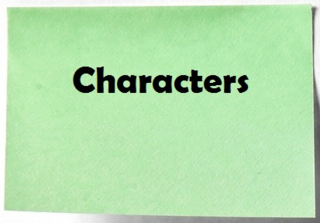 plot of your story requires that the viewpoint character keep his identity secret from other characters. Such a character is known as a deciever.
plot of your story requires that the viewpoint character keep his identity secret from other characters. Such a character is known as a deciever.
A good example of a deceiver occurs in “The Ten Commandments” motion picture when Moses, a popular and sucessful Egpytian general, learns he is of Hebrew descent and so goes into the slaves’ brickmaking camp to learn what life is like for his people. If he went in as a general, he would only see what the slavemasters wanted him to see and would not truly feel or understand the Hebrews’ plight. So he hides his identity and “pretends” to be a Hebrew.
There are a numebr of plot situations when a deceiver could be used:
g Traveling incognito – The character may want to learn the truth about what is going on. This works for anyone investigating a crime or spying in which sneaking around is necessary.
g Operating in disguise – If the character must accomplish some mission, he might wear costumes or change his identity. This allows the character to operate in the open rather than skulk about.
g Keeping identity secret as he’s really a superhero – A character may operate in the open but does not want anyone to connect him to his alter ego (such as Clark Kent doesn’t want anyone to know he’s Superman) because doing so would put him at risk and limit opportunities for the alter ego to solve problems.
A subtype of the deceiver character is the man on the make, a character whose deceptions form a coherent game plan that become apparent as the plot develops.
Need an editor? Having your book, business document or academic paper proofread or edited before submitting it can prove invaluable. In an economic climate where you face heavy competition, your writing needs a second eye to give you the edge. Whether you come from a big city like Dallas, Texas, or if you come from a small town Why, Arizona, I can provide that second eye.
&lt;A HREF="http://ws-na.amazon-adsystem.com/widg... Widgets&lt;/A&gt;
Related articles
 Avoid writing concealed identity story
Avoid writing concealed identity story Maintain sense of tension through pace
Maintain sense of tension through pace
September 8, 2014
Use foreshadowing to enrich your story
Sometimes as  a writer you need to provide clues in a story. Mysteries, for example, center on solving a crime, such as a murder. Other genres typically involve some problem that must be addressed, and to that end usually the character must tease out the problem to understand it. Such clues can be provided by the use of foreshadowing.
a writer you need to provide clues in a story. Mysteries, for example, center on solving a crime, such as a murder. Other genres typically involve some problem that must be addressed, and to that end usually the character must tease out the problem to understand it. Such clues can be provided by the use of foreshadowing.
Foreshadowing is a hint of something to come. For example, you might note that a character who later meets an untimely end has a “grave expression” on their face.
Foreshadowing can ensure that readers won’t be disappointed when the mystery of the novel is finally revealed. The reader will remember the hint, which then makes the solution to or explanation of the mystery more plausible. Foreshadowing also can be used to provide a symbolic richness to the story. For example, John Steinbeck in “Of Mice and Men” has the character Lennie accidentally kill a mouse, a puppy, and then a woman. This hints at his own death.
This literary device can appear in a number of ways – a single word, actions by a character, the use of symbols, and so on. However used, it typically is quite subtle so as not to draw attention to itself.
The opposite of foreshadowing is the red herring, which is a hint meant to mislead readers. This frequently appears in mystery novels as figuring out who committed the crime is part of the fun of reading the novel. Closely related to foreshadowing is the flash forward, aka prolepsis, which occurs when the narrative actually jumps out of the timeline to the future.
Need an editor? Having your book, business document or academic paper proofread or edited before submitting it can prove invaluable. In an economic climate where you face heavy competition, your writing needs a second eye to give you the edge. Whether you come from a big city like San Jose, California, or a small town like Boar Tush, Alabama, I can provide that second eye.
&amp;amp;amp;amp;amp;amp;amp;amp;amp;amp;lt;A HREF="http://ws-na.amazon-adsystem.com/widg... Widgets&amp;amp;amp;amp;amp;amp;amp;amp;amp;amp;lt;/A&amp;amp;amp;amp;amp;amp;amp;amp;amp;amp;gt;Related articles
 Remain wary of using fast-forward in story
Remain wary of using fast-forward in story Draw readers into story with great opening lines
Draw readers into story with great opening lines Avoid dumping backfill into your story
Avoid dumping backfill into your story
September 7, 2014
Five Great Quotes about ‘Write What You Know’
“If you 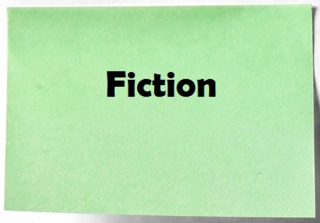 don't know it, don't write it.” – Darrell Schweitzer
don't know it, don't write it.” – Darrell Schweitzer
“It’s better to write about things you feel than about things you know about.” – L. P. Hartley
“And as to experience – well, think how little some good poets have had, or how much some bad ones have.” – Elizabeth Bishop
“Use your imagination. Trust me, your lives are not interesting. Don't write them down.” – W. B. Kinsella
“Most beginning writers (and I was the same) are like chefs trying to cook great dishes that they've never tasted themselves. How can you make a great (or even an adequate) bouillabaisse if you've never had any? If you don't really understand why people read mysteries (or romances or literary novels or thrillers or whatever), then there's no way in the world you're going to write one that anyone wants to publish.” – Daniel Quinn
Need an editor? Having your book, business document or academic paper proofread or edited before submitting it can prove invaluable. In an economic climate where you face heavy competition, your writing needs a second eye to give you the edge. Whether you come from a big city like Denver, Colorado, or a small town like Dewey Beach, Delaware, I can provide that second eye.
&amp;amp;amp;amp;amp;amp;amp;amp;lt;A HREF="http://ws-na.amazon-adsystem.com/widg... Widgets&amp;amp;amp;amp;amp;amp;amp;amp;lt;/A&amp;amp;amp;amp;amp;amp;amp;amp;gt;Related articles
 Avoid using weak pushbutton words in story
Avoid using weak pushbutton words in story How to find a good editor or proofreader
How to find a good editor or proofreader



